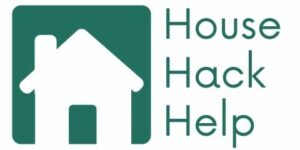Can You House Hack Without Living in the Property?
No, if you finance your house hack with an owner-occupied mortgage, you will usually be required to live in the property for at least one year before you can move out and rent out the entire thing.
Lender Restrictions and Occupancy Requirements
Since owner-occupied loans tend to come with lower interest rates and down payments, they can be very advantageous for house hackers. However, most lenders of owner-occupied loans require borrowers to occupy the property as their primary residence for at least the first 12 months after purchase.
A primary residence is the home you live in full-time. It is not possible to have two primary residences at one time.
The one-year occupancy requirement associated with owner-occupied loans is true for both conventional mortgages and government-backed FHA loans.
In the first year that you’re living in the property, you are generally still allowed to rent out spare rooms and additional units. You just can’t move out and rent out the entire property right away.
This is to ensure that the home is in fact owner-occupied, and you are not borrowing as an investor at the time of purchase.
Homeowner Association Rules Against Renting
In some cases, HOA occupancy requirements can match or exceed those set by your mortgage lender. Some associations might ban rentals entirely, whether you live in the property or not.
If your property is located in an area that is governed by a homeowners association (HOA), you’ll want to pay careful attention to their rules and regulations against renting. Make sure that you read their declaration and bylaws carefully before closing on a property that you plan to house hack.
This may be especially relevant if you are house hacking a condo, as most condominium complexes are overseen by HOAs.
While some HOAs will place few or no restrictions on homeowners renting out their property, others may impose strict regulations or even prohibit it outright.
And since HOA rules are subject to change, you’ll want to make sure that you stay up to date with any new rules and restrictions imposed on your property.
Zoning Restrictions Against House Hacking

Depending on local zoning laws and housing codes, you may run into trouble when trying to house hack.
For instance, some local ordinances restrict the presence of multi-family housing. If you are planning to convert a single family home into a multi-family property so you can rent out additional units, make sure that you’re not buying in an area that is zoned exclusively for single-family, detached houses.
Maximum occupancy requirements are also determined by zoning laws and may limit the number of people that can live in the property, depending on the square footage and the number of rooms that it has.
Depending on the size of the home and whether it has extra bedrooms, you might not be able to live in the home while also renting it out.
What Happens If You Don’t Live In Your House Hack?
If you defraud your lender by failing to live in the home for the first year as agreed, you may be accused of occupancy fraud.
Occupancy fraud is a type of mortgage fraud that occurs when a borrower lies on their mortgage application about their intention to occupy the property as a primary residence.
Mortgage fraud, including occupancy fraud, is considered a federal crime. If you are found guilty, you could face financial penalties, raised interest rates, and even foreclosure or imprisonment.
If you finance your house hack with an FHA loan, you must occupy the home within 60 days of signing and live in the home for the majority of the first year. Failing to do so can lead to an investigation by the FHA.
If you violate the rules and regulations stipulated by your HOA or condo association, you could face some pretty substantial fines. In some cases, an HOA can even put a lien on your home.
Do You Have To Live in the Property to House Hack?
Yes, you technically need to live in a property, at least temporarily, in order to house hack.
House hacking means renting out space in your primary residence, and it is such a powerful investing strategy in large part because it allows you to take advantage of owner-occupied financing.
That said, most lenders of owner-occupied mortgages will require you to occupy the property as your primary residence for the first 12 months.
If you’re not bound by any additional HOA regulations or zoning restrictions, you will likely be able to move out of your house after a year and begin renting out the entire home.
If the first house hack goes well, you may even consider picking up another property and house hacking a second home while renting out the entirety of the first one.
FAQs
Do I have to live in the property for the entire life of the loan?
No, most lenders only require that you occupy the property for 12 months. After that, you can move out and rent out the entire home if you’d like.
Can I live in one unit of a duplex and rent out the other?
Yes, as long as you are occupying one unit of the duplex as your primary residence, you should be able to qualify for an owner-occupied mortgage while still being able to rent out the extra unit.
Can I house hack with a VA loan?
Yes, as long as you occupy the home as your primary residence for at least 12 months, you should be able to use a VA loan to house hack.
Can I house hack with an investment property?
No, in order to house hack, the property must be your primary residence. You can, however, live in one unit of a duplex or other multifamily property and rent out the other units.
What happens if I don’t live in the property for the first year?
If you fail to occupy the property as your primary residence for the length of time required by your lender, you may be accused of occupancy fraud. This is a serious offense that could result in financial penalties, raised interest rates, foreclosure, or even imprisonment.
This website, and any communication stemming from it, should not be taken as financial or legal advice for your specific situation. Consult directly with a licensed financial professional should you need investment advice and consult directly with a licensed attorney directly should you need legal advice. Assume all links are affiliate links. I am an Amazon affiliate.


